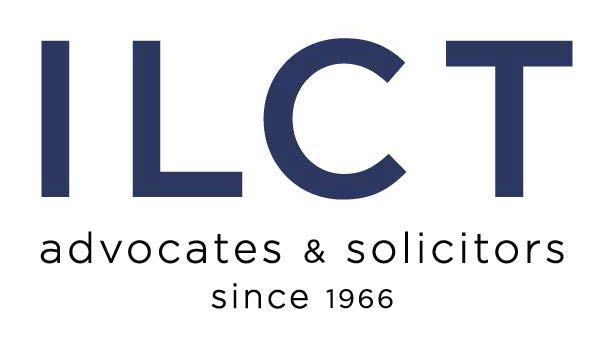มาตรฐานการรักษาความมั่นคงปลอดภัยของการประชุมผ่านสื่ออิเล็กทรอนิกส์
สืบเนื่องจากการที่พระราชกำหนดว่าด้วยการประชุมผ่านสื่ออิเล็กทรอนิกส์ พ.ศ. 2563 ซึ่งถูกประกาศใช้ตั้งแต่วันที่ 19 เมษายน 2563 เป็นต้นมา ได้กำหนดให้การประชุมผ่านสื่ออิเล็กทรอนิกส์ต้องเป็นไปตามมาตรฐานการรักษาความมั่นคงปลอดภัยที่กระทรวงดิจิทัลเพื่อเศรษฐกิจและสังคมกำหนด
ด้วยเหตุนี้ กระทรวงดิจิทัลเพื่อเศรษฐกิจและสังคมจึงได้ออกประกาศเรื่อง มาตรฐานการรักษาความมั่นคงปลอดภัยของการประชุมผ่านสื่ออิเล็กทรอนิกส์ พ.ศ. 2563 โดยให้มีผลบังคับใช้ตั้งแต่วันที่ 27 พฤษภาคม 2563 เป็นต้นไป สาระสำคัญของประกาศดังกล่าวสามารถสรุปได้ดังนี้
ในการประชุมผ่านสื่ออิเล็กทรอนิกส์ ผู้มีหน้าที่จัดการประชุมต้องจัดให้มีกระบวนการดังต่อไปนี้เป็นอย่างน้อย
- การแสดงตนของผู้ร่วมประชุมผ่านสื่ออิเล็กทรอนิกส์ก่อนการประชุมจะต้องมีความมั่นคงและรัดกุมตามความเหมาะสมกับการประชุม
- การสื่อสารหรือมีปฏิสัมพันธ์กันได้ด้วยเสียง หรือทั้งเสียงและภาพ จะต้องเชื่อมโยงผู้ร่วมประชุมที่มิได้อยู่ในสถานที่เดียวกันให้สามารถประชุมปรึกษาหารือและแสดงความคิดเห็นระหว่างกันได้ผ่านสื่ออิเล็กทรอนิกส์ได้ในเวลาเดียวกัน
- ผู้มีหน้าที่จัดการประชุมต้องจัดส่งเอกสารประกอบการประชุมของผู้ร่วมประชุมให้ให้แก่ผู้ร่วมประชุมก่อนหรือในระหว่างประชุม
- การลงคะแนนของผู้ร่วมประชุมต้องเป็นไปตามวิธีการที่กำหนดในประกาศนี้
- การจัดเก็บข้อมูลหรือหลักฐานที่เกี่ยวข้องกับการประชุมผ่านสื่ออิเล็กทรอนิกส์ ซึ่งรวมถึงการบันทึกเสียง หรือทั้งเสียงและภาพของผู้ร่วมประชุมทุกคนตลอดระยะเวลาที่มีการประชุม (เว้นแต่เป็นการประชุมลับ) จะต้องถูกบันทึกในรูปข้อมูลอิเล็กทรอนิกส์และเก็บรักษาด้วยวิธีการที่มีความมั่นคงปลอดภัยและด้วยวิธีการที่เชื่อถือได้
- การจัดเก็บข้อมูลจราจรอิเล็กทรอนิกส์ของผู้ร่วมประชุมทุกคนไว้เป็นหลักฐานจะต้องเป็นไปตามวิธีการที่ประกาศฉบับนี้กำหนด
- การแจ้งเหตุขัดข้องในระหว่างการประชุม ให้ผู้มีหน้าที่จัดการประชุมจัดเตรียมช่องทางการแจ้งเหตุขัดข้อง เพื่อรองรับการแก้ไขเหตุขัดข้องที่เกิดขึ้นในระหว่างการประชุม
นอกจากกระบวนการข้างต้นแล้ว การประชุมผ่านสื่ออิเล็กทรอนิกส์จะต้องมีมาตรฐานการรักษาความมั่นคงปลอดภัยด้านสารสนเทศในเรื่องดังนี้เป็นอย่างน้อย
- การรักษาความลับ (confidentiality)
- การรักษาความครบถ้วน (integrity)
- การรักษาสภาพพร้อมใช้งาน (availability)
- การรักษาความเป็นส่วนตัวและการคุ้มครองข้อมูลส่วนบุคคล
- คุณสมบัติอื่น ๆ ได้แก่ ความถูกต้องแท้จริง (authenticity) ความรับผิด (accountability) การห้ามปฏิเสธความรับผิด (non-repudiation) และความน่าเชื่อถือ (reliability) ของข้อมูลอิเล็กทรอนิกส์ที่เกี่ยวข้องหรือเกิดจากการประชุม
ในกรณีที่เป็นการประชุมในเรื่องลับ ประกาศฉบับนี้ยังได้กำหนดมาตรการรักษาความมั่นคงปลอดภัยเพิ่มเติมเพื่อป้องกันมิให้บุคคลที่ไม่มีสิทธิร่วมประชุมรู้หรือล่วงรู้ถึงข้อมูลเกี่ยวกับการประชุมอีกด้วย
นอกจากมาตรการที่สรุปไว้ข้างต้น ประกาศฉบับนี้ยังได้ให้อำนาจสำนักงานพัฒนาธุรกรรมทางอิเล็กทรอนิกส์ในการกำหนดมาตรฐานการรักษาความมั่นคงปลอดภัยด้านสารสนเทศของระบบควบคุมการประชุมเพิ่มเติมได้หากเห็นสมควร อีกทั้งยังให้อำนาจหน่วยงานดังกล่าวเข้าตรวจประเมินและรับรองระบบควบคุมการประชุมผ่านสื่ออิเล็กทรอนิกส์ให้เป็นไปตามมาตรฐานที่กำหนดในประกาศนี้ ดังนั้น นิติบุคคลที่ประสงค์จะจัดการประชุมผ่านสื่ออิเล็กทรอนิกส์จึงควรติดตามประกาศจากหน่วยงานที่เกี่ยวข้องอย่างใกล้ชิดเพื่อให้สามารถจัดเตรียมการประชุมได้ถูกต้องครบถ้วนตามวิธีการและมาตรฐานที่กฎหมายกำหนด



